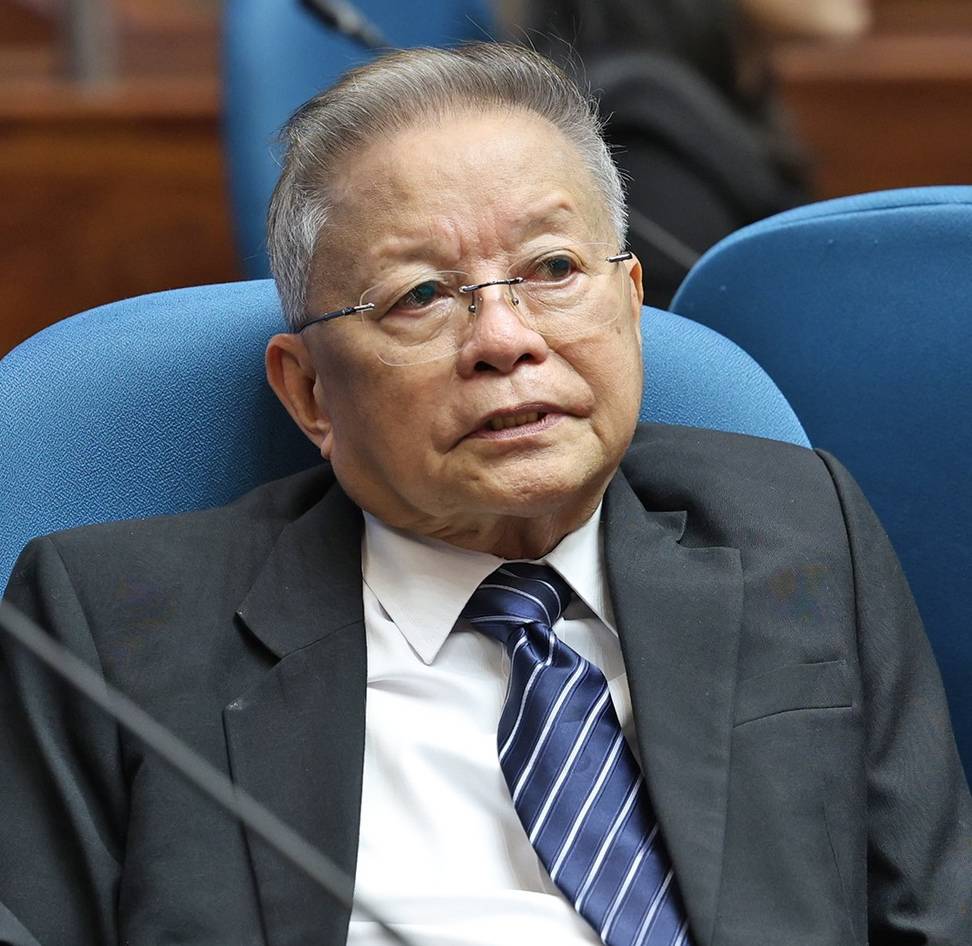
Former Chief Justice Reynato S. Puno —PHOTO FROM HOUSE OF REPRESENTATIVES
A day after the House of Representatives said it was “willing to risk” a constitutional challenge to carry out amendments to economic provisions that limit foreign ownership, former Chief Justice Reynato Puno on Wednesday advised the chamber to avoid a scenario where their efforts to amend the 1987 Constitution would be questioned at the Supreme Court.
Speaking during the hearing where the House convened as a committee of the whole, Puno reminded the lawmakers that a constitutional challenge would essentially send their resolution into limbo.
He was referring to Resolution of Both Houses No. 7, which seeks to open public utilities, educational institutions and advertising to 100-percent foreign ownership.
“If that happens, all these wishes of us, all these desires of us, that we invite foreign businesses, will not come to reality,” he warned.
“Once this case is before the SC, we do not know the time it would be decided and we do not know how the court will decide.”
It was a reiteration of what Puno told the House during its first hearing on RBH 7 on Monday. He then said lawmakers could simply repeal the economic provisions they want relaxed, instead of amending the Constitution to add the phrase “unless otherwise provided by law.”
The former chief justice said this could open the floodgates to amendments through mere enactment of laws, “effectively short-circuiting the power of the people to approve or disapprove changes to the Constitution, (thus) subverting their sovereignty.”
He said adding the phrase was problematic as it could be interpreted as a “waiver of the power of the people to approve or disapprove any change to the Constitution or as a delegation of the people’s power to Congress.”
Puno had also suggested repealing Article 2, Section 19 of the Constitution, which states that the government “shall develop a self-reliant and independent national economy effectively controlled by Filipinos.”
But even assuming that both chambers of Congress agree on everything, including the procedure of voting, he believed that a dispute would arise “once you start implementing the resolution.”
Power sector to benefit
At the same hearing, Energy Undersecretary Sharon Garin expressed support for RBH 7, saying more foreign investments could help improve the country’s power concerns and create more jobs especially in renewable energy (RE).
For Garin, it would be more “nationalistic” to allow more foreign investments that could improve public services rather than impose a hard rule requiring Filipino-only businesses to compete in the energy sector.
She cited the example of Spain-based wind power developer BlueFloat Energy, which was planning to build offshore wind farms with a total capacity of 7.8 gigawatts. In contrast, she noted, the Filipino investor of the nearest caliber in the same field was capable of only 1.2 GW.
“Why do we not have good basic services in transportation, telecommunications? It’s because there is a lack of capital,” Garin said, speaking as a resource person at the hearing. “I think it’s unfair to say that just because we have more foreign investments, we are less nationalistic than others.”
She cited the case of the RE sector which experienced a surge in project applications since it was opened to full foreign ownership in 2022.
Garin said her department has since received 400 proposals for RE contracts, of which 275 were approved for 39,000 GW capacity valued at about P8 trillion.
Among these were the $5-billion plan of Copenhagen Infrastructure Partners to develop three offshore wind energy projects that have the potential capacity of 2 GW in Camarines Norte and Sur, Northern Samar, Pangasinan and La Union, create 4,500 jobs, generate enough power to supply a million households, and help bring the country closer to its goal of achieving 40-percent renewable in its energy mix by 2040.
“Currently, the country is the ‘darling of the world’ when it comes to RE,” she said. “It’s because we sent the right signal: We opened up.”
“Other than investments in the development of [RE], another component that will come in because of the trillions of investment from foreign investors is port development. We will need at least 10 new ports in order to cater to offshore wind projects,” Garin said.
Plebiscite timeline
Also on Thursday, ACT Teachers Rep. France Castro maintained that cost-efficiency should not be a deciding factor on matters as important as amending the Constitution.
Castro was reacting to President Marcos’ statement made on Wednesday that he would prefer holding a plebiscite on Charter change simultaneously with the midterm elections in May 2025 since it would result in “huge savings” for the government.
“Our countrymen need comprehensive education on the constitutional amendments being proposed,” she said, “it shouldn’t just be added in the ballot just because you want to scrimp on costs,” said Castro, the House deputy minority leader. —WITH A REPORT FROM JEANNETTE I. ANDRADE

